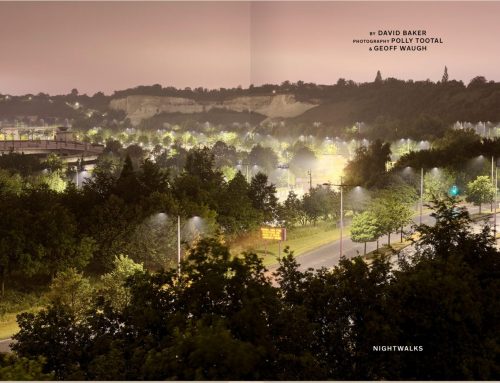Police sirens, thumping music, loud neighbours – noise is no longer ‘the forgotten pollutant’
Financial Times, 19 August 2006
What noise can you hear right now? Birdsong? The buzzing of an insect against the windowpane? Wind rustling through leaves? Or is it a loud mobile-phone conversation in the street? A police siren? The beep-beep of a lorry reversing?
“Britain’s cities are getting noisier and noisier,” says Deborah Withington, professor of auditory neuroscience at the University of Leeds. “The level of noise in cities is sometimes so high it’s hard to have a conversation. It’s to do with the density of population, the density of traffic and the fact that there are more and more electronic-type sounds like car alarms, burglar alarms, sirens…”
Noise was described in 1959 as the “forgotten pollutant” by John Connell, who went on to found the Noise Abatement Society. Connell’s big victory was the banning of night flights into Heathrow (to make his point he went with a group of journalists to the home of Duncan Sandys, then minister for aviation, at 3am and woke him by knocking loudly on his door). He is also the man behind such noise-reduction measures as rubber dustbin lids and plastic milk crates. But even Connell, who died nine years ago, would have been flummoxed by urban noise today. “It’s now cheap and easy to make a device that emits a single electronic tone,” says Withington. “Things are being added all the time and almost nothing is being taken away.”
“The world is a much, much noisier place than it was 20 years ago,” says Cary Cooper, professor of organisational psychology and health at the University of Lancaster. “We have open-plan offices, aircraft, traffic . . . and we are becoming slightly more extrovert with each other. In order to get ahead you have to be less timid.”
Peter Wakeham, present-day director of the Noise Abatement Society, agrees: “You can’t see noise, you can’t taste it and until it affects you, you don’t notice it. But noise pollution affects your health in so many ways.”
One man with first-hand experience is Dave Whittel, a firefighter based in Clacton, Essex. Whittel had lived for 12 years in the village of Ardleigh (population 200) in a house about 50ft from the London to Norwich train line. Last August, he returned from holiday to find what remained of his rural quiet shattered. New safety regulations meant two whistleboards had been erected on the line on either side of his house where public footpaths cross the tracks. These require train drivers to sound their horns as they approach the crossings.
“The sound of the whistles was like a HGV lorry sounding its horn outside your bedroom window every 10 minutes, 24/7,” says Whittel. “There are 136 trains a day passing the house between 5.30 in the morning and half past midnight and then goods trains during the night and they all have to sound their horns. And this was for one footpath that was not being used and another that was used by about six people a year.”
Unsurprisingly, Whittel’s sleep was severely affected. He was signed off work for six weeks. (“You would physically jump every time it happened,” he says.) He campaigned hard for the whistleboards to be removed and, with the help of his local council, last month had a small victory when, for an experimental six-month period, the footpaths were closed and the boards taken down. He is now back at work but still can work only day shifts. “It has affected my health badly,” he says.
Withington has taken an interest in cases like Whittel’s. “At first I thought, ‘You knew there was a railway there when you bought your house at the side of the track’ but then I found there was a real problem. The horns on some of the new rolling stock are much louder and the problem comes from the spill noise to the side of the track. Plus, unwanted noise annoys. People are tense all the time waiting for it to go off. It takes over their lives completely. It’s a terrible situation to be in.”
“Noise pollution isn’t just about ambulances, music, people talking loudly and so on,” says Cary Cooper. “Background noise causes you stress when it isn’t continuous, when it undulates, goes up and down in pitch of volume, isn’t always there. It’s not the hum you get from, say, living next to a motorway that’s the problem – in fact some people find that quite soothing. It’s when a noise gets louder and then disappears in a non-rhythmic way that it becomes stressful; when it is unexpected, unpredictable.
“It’s all about control. Take iPods, for example. In terms of decibels, the sound going into your ear when you wear iPod headphones is a lot louder than the tss-tss-tss sound you hear when you sit next to someone wearing headphones on the bus. But which is more annoying? You can control your sound. You can’t control theirs.”
“I worry a lot,” says Wakeham, “about how other people are forced to hear unwanted noise. Sadly, the days of love thy neighbour are gone. People are not considerate any more. Don’t get me wrong. I love my rock ‘n’ roll and I still wear winkle-pickers but I don’t force my music on other people.”
It’s a sunny weekday afternoon in Hackney, east London, and in effect we’re doing just that. I am with Tony Grant, who is proudly showing me the in-car sound system he has rigged up in his gleaming, green Range Rover. There are tweeter and mid-range speakers in each of the four doors, a pre-amplifier in the glove compartment and, in the boot, two more amplifiers and a single, box-mounted bass speaker, about 15 inches in diameter, that vibrates like a bass drum when the music is turned up.
And, believe me, it is turned up. We’re listening to Michael Jackson’s “Billie Jean” and I’m hearing it in a totally new way. The sound itself is crystal clear (afterwards my own car stereo sounds like a transistor radio by comparison). But it’s the bass that moves you, literally. The vibration runs through the chassis of the car, into your seat and up through your body. You are feeling the music as well as hearing it. It’s not an unpleasant feeling but I don’t know if I could face a long car journey with it on all the time.
It soon transpires that I am not going to. Disappointingly, for Grant at least, the Range Rover’s cooling pump broke the night before and, rather than bombing down the motorway with the music on full blast, we are being towed at about 5mph through one of the area’s main shopping streets – with the music on full blast. It feels a little like the circus has come to town.
On the pavement the reaction splits immaculately down demographic lines. Grant’s is one of those cars whose bass sound vibrates through the road when they are next to you at the lights and, despite the lack-of-coolness that comes with being pulled along by a tow truck, it attracts attention. Young men love it, give him the thumbs up and sing along to the Jamaican reggae he’s switched to. Young women give us a brief glance and raise their eyebrows in that “what can you expect from boys?” kind of way. Older people of both sexes, in other words anyone over about 25, look on disapprovingly.
Grant is having a great time. As the bass pounds through the car he makes little adjustments to the mix, grinning as he gets it just right. “That’s the buzz,” he says, sitting back and watching Hackney’s shoppers overtake us on the pavement. When we stop I ask him whether he thinks people might find the music he plays annoying. “I don’t think so, not if you keep moving. Sure, you can hear the sound coming but it passes. But if you stop, sometimes the slightest sound gets to them. That happens to me. In that case I wouldn’t do it.”
Grant sees himself a little like a performer. He’d like to be a DJ but he has trouble with reading. This is what he knows how to do. “When I am driving, say on a Sunday evening, I clean my car, I am in a good mood and, depending on where I am, I choose some music. In the West End or round the City, you know, there are a lot of different nationalities so I play something everyone knows, like Michael Jackson or . . . ” He clicks his fingers a couple of times, trying to remember the name. ” . . . Will Young. But if I am round here (in Hackney) I would play Jamaican culture music . . . ” He smiles and a gold tooth in his mouth catches the sun. ” . . . Like Bob Marley and the Wailers or Richie Spice.
“It makes you feel good when you are enjoying it and someone else is enjoying it and people start dancing on the pavement,” he continues. “The other day even this little baby was dancing.
“It can be a noisy living in London,” he says, “but it’s London. That’s what makes the city. If you can’t live with the noise,” he grins, “you’re better off in Essex or somewhere like that.”
James and Jenny (not their real names) do live in Essex but they may not share Grant’s tranquil vision of their county. The couple have in effect been driven out of their ground-floor flat by noisy neighbours moving in above them.
“It started about eight months ago,” says James, “when some new people moved in. At first it was quite friendly – we’d say hello and so on – but soon we started hearing techno music coming from the flat, regularly and really loud. One of the guys up there is a DJ and he has great equipment, which means the sound shakes our ceiling. They do it any time of day.”
One of the couple would go upstairs and request the volume be turned down but “they didn’t like to turn it down, it was either full-on or they would just turn it off completely and stomp around angrily above our heads. The other problem was that it was impossible to tell how many people were living there – three or seven or eight – it kept changing, so you would reason with one person and then never see them again.”
Things took a turn for the worse one Saturday morning in the spring. “We were lying in bed at 8am and the music came on. There was a new guy up there by this time, very threatening-looking. I knocked on the door but he wouldn’t open it. So I decided to take matters into my own hands, perhaps something I shouldn’t have done, and turned the electricity off at the mains. He came out screaming. I only switched it off for about 30 seconds but apparently that was long enough to affect their computers. As far as they were concerned, from then on it was war. They would turn the music on just to annoy us. I would come home from work and it would be quiet and then five minutes later the music would start.”
The final straw came when the tenants upstairs arrived home drunk one night. “It was about half-past midnight and we were asleep in bed. We were woken up by them crashing through the front door. I shouted ‘Shut up,’ from the bed and the threatening guy said, ‘Who are you telling to shut up? Come out here and say that to my face. I’ll break your door down.’ Then they went upstairs and put on the loudest music you have ever heard. So I called the police, which gave them a scare. I also called their landlord, who threatened not to renew their contract. Things have been better since. But we are now looking for another property.”
Wakeham reckons that 500,000 people a year in the UK move because of noise. “When something like this happens,” says James, “you become incredibly sensitive to noise. It changes your mode of life. You lose the ability to differentiate between what is outrageous and what is just the normal sound of people living upstairs.”
Yet how normal is the noise we put up with in a city? In the middle of a postwar council estate just west of the City is a simple brick building. This is the Bunhill Meeting House, built on the spot where Quakers have met for regular silent worship since the 17th century. George Fox, one of the founders of Quakerism, is buried next door. It is 11am on a Sunday and five or six people are sitting quietly in a simply painted room waiting for the service to begin. Quakers have no clergy or services in the traditional sense. Instead, they meet and sit in silence for an hour. Anyone can speak if they feel the call to but there is no obligation and often the hour passes without anything being said at all.
This is my first Quaker meeting and I am quietly apprehensive. When I told a friend I was going, his response was “Oh no. Silence for me means either anger or boredom.”
Indeed, at first it is uncomfortable, like being in detention or disgrace. But gradually you become more aware of the sounds around you and the feelings soften. The low rumble of an aircraft passes overhead. Outside the window children from the estate are playing. One of them drags a piece of wood along the pavement, making a jerky, scraping sound. Someone has put some music on in a nearby flat. I can hear birds in the trees and, this being London, the inevitable police siren in the distance. Someone starts to drill next door.
Inside the room, the silence has settled round us like a blanket. About 10 minutes has passed and from our little oasis of calm the sounds outside seem to grow in clarity until I can sense quite distinctly their different distances from us – their pitches, timbres, volumes and qualities. It is like listening to an orchestra playing. I find myself looking forward to hearing the plank scraping past again. Even the drill has lost its capacity to annoy.
Towards the end of the meeting a couple of people say something but otherwise we have spent 60 minutes sitting quietly. It’s a rare and humbling experience and somehow shows you a new way of listening to the city. Maybe, I think to myself, living with noise would be easier if we all made a little time to quieten down.






